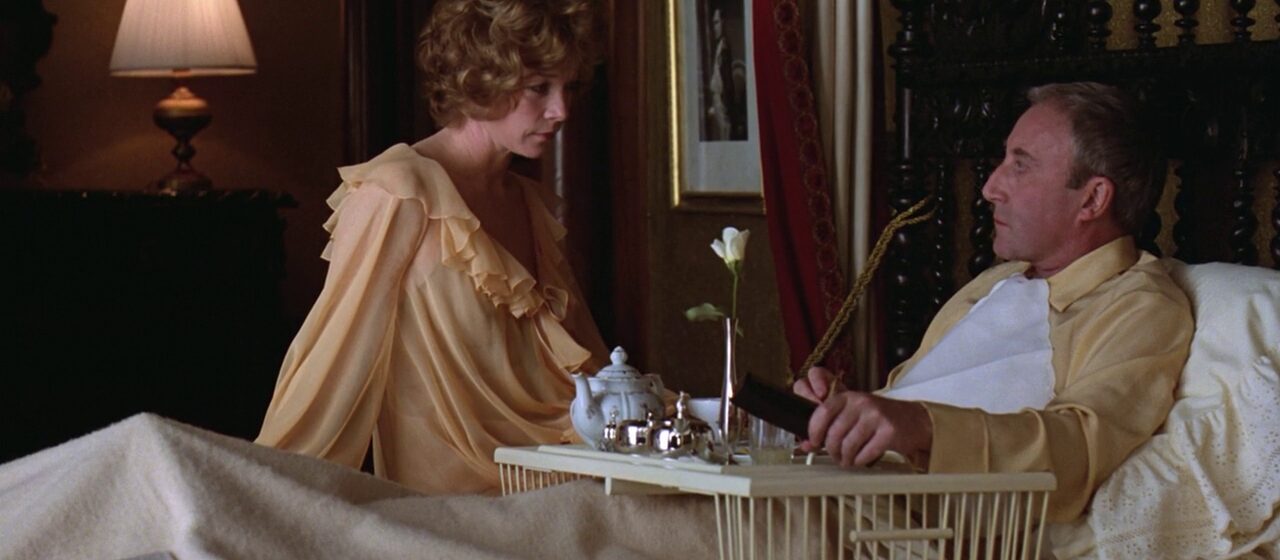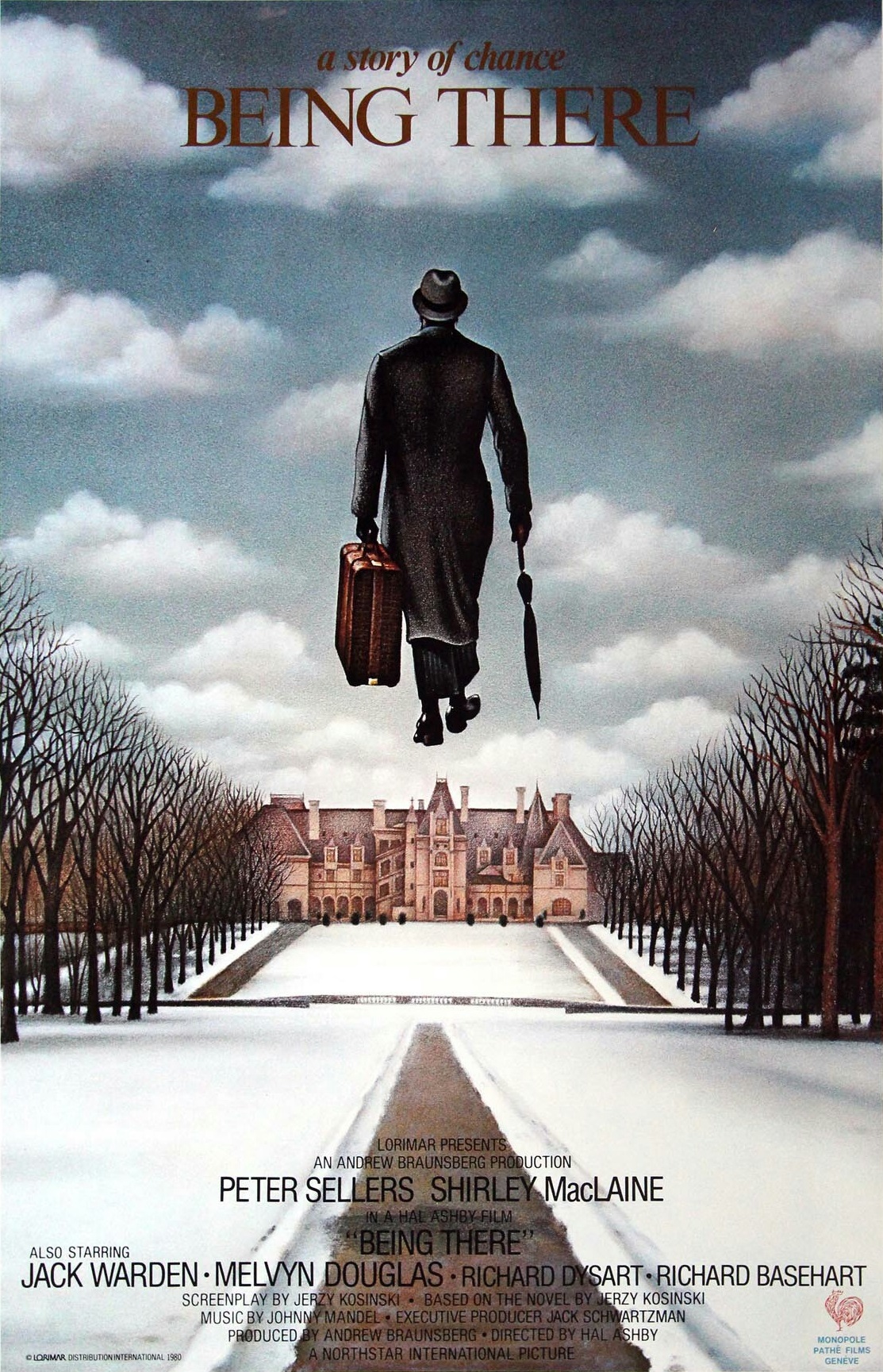

“Life is a state of mind.”
In Hal Ashby’s Being There, adapted from Jerzy Kosinski’s 1970 novel, Peter Sellers plays Chance the gardener, a sequestered, illiterate, emotionally-stunted simpleton who’s spent his entire life tending to the plants in the courtyard of a rich old benefactor’s Washington, D.C. townhouse. Besides the old man, his only acquaintances are the maid (Ruth Attaway) and the television, which he passively watches no matter what’s playing. When the old man dies and a pair of pushy lawyers force him to move out, Chance wanders the streets of the nation’s capital for the first time in bemused wonder.
Despite his limited mental faculties, the fact that he wears the old man’s dapper suit and comports himself in a congenial manner learned from Mister Rogers means that when he crosses paths with Eve Rand (Shirley MacClaine), she interprets his blunt demeanor as a kind of suave sophistication. Soon, Chance—now going by Chauncey—finds himself rubbing shoulders with Eve’s terminally ill husband Ben (Melvyn Douglas), an influential industrialist who introduces his new confidante to the President (Jack Warden), whereupon Chance wows his companions with “profound” gardening metaphors. “As long as the roots are not severed, all is well. And all will be well in the garden,” he says.
By the end of the film, he’s appeared on television as a Presidential Advisor (sending the Secret Service into a frenzy), developed a relationship with a Soviet ambassador (Richard Basehart), driven Eve into sexual rapture by suggesting that he “likes to watch” (he means television, she thinks he means something else entirely), and become a strong candidate for the upcoming Presidential election. All of this and only a few—the Rands’ live-in doctor (Richard Dysart), the lawyers (David Clennon, Fran Brill), the maid—suspect that Chance is anything less than the laconic intellectual powerhouse the Rands initially perceived him as.
One can debate what it all means until the cows come home. Some of it’s obvious—“America ain’t shit ’cause the white man’s got a god complex,” the masses mindlessly glued to the TV sets, the vacuity of politicians, our propensity for foisting reflections of our neuroses onto public figures—but what is one to make of the ending, which sees Chance walk on water? Should we read anything into Ben’s request for “fresh blood for dinner?” Importantly, though, like all good film’s burdened by the weight of social conscience, Being There is first and foremost a well-made film with comedy and characters and cleverness that work even before considering an interpretation of its nuanced satire.
If you think a secret society rules the world, this is a film for you. If, contrariwise, you think the ruling class is a bunch of narcissistic vacuum skulls, this is also a film for you.